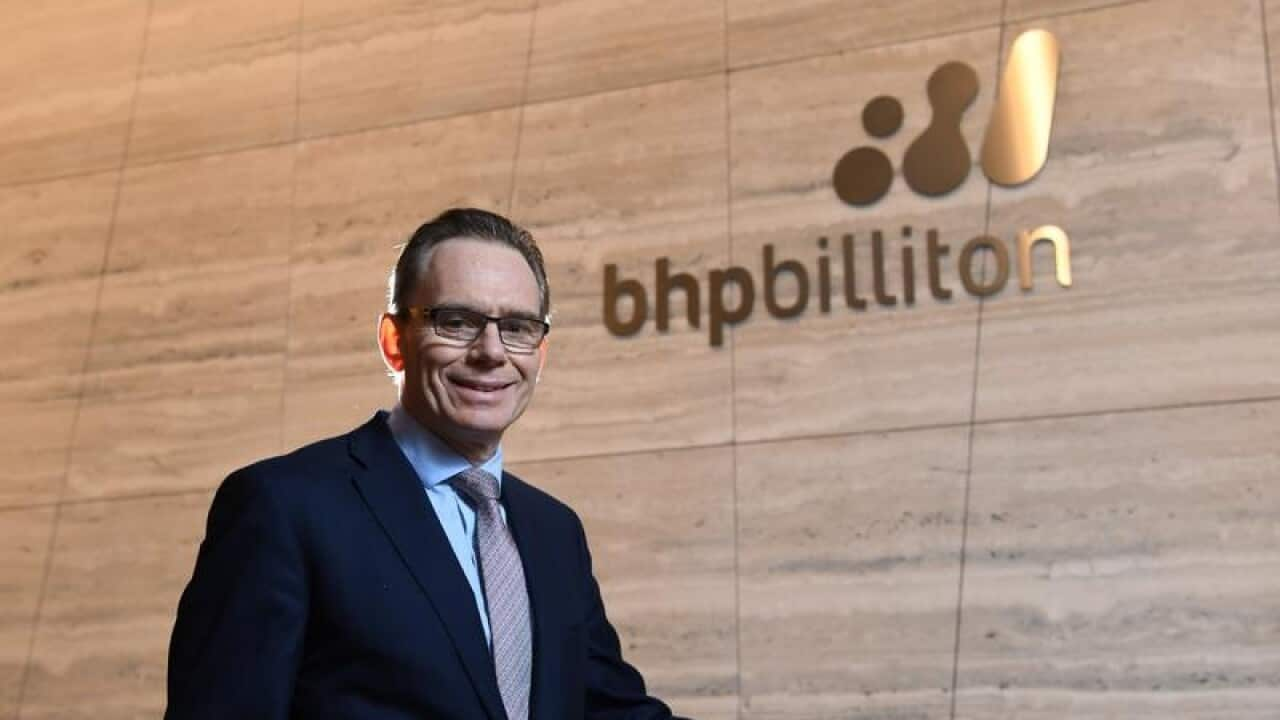BHP Billiton chief executive Andrew Mackenzie's annual pay has more than doubled as his short term incentives were restored amid the mining giant's improved financial performance.
Mr Mackenzie earned $US4.55 million ($A5.68 million) in the 2016/17 financial year, including a base salary of $US1.7 million, short term incentives of $US2.3 million, and pension contributions of $US425,000.
That compares to $US2.2 million in the previous year, when Mr Mackenzie's was paid no short and long term incentives following the Samarco dam disaster in Brazil that claimed 19 lives and resulted in widespread environmental damage.
"The key driver of this difference is that Mr Mackenzie did not receive any STI in FY2016 as a consequence of the dam failure at Samarco, along with the ongoing decline in commodity markets, in that year," remuneration committee chairman Carolyn Hewson said in BHP's annual report, released on Wednesday.
Mr Mackenzie again realised no long term incentives in 2016/17 because of weaker shareholder returns compared to peer companies over a five year period to June.
Mr Mackenzie's statutory pay packet - which accounts for the value of long-term incentive shares allocated but not yet paid - was $US7.09 million.
While Mr Mackenzie's take-home pay recovered sharply, it is still a fraction of the $US16.1 million earned by his predecessor Marius Kloppers in 2011/12.
Annual pay for Mr Mackenzie, BHP's operations management committee members and fees for non-executive directors will largely remain the same in the current financial year, the company said.
Newly-appointed chairman Ken MacKenzie will earn annual fees of $US880,000, about eight per cent lower than his predecessor Jac Nasser, BHP said.
Meanwhile, the mining giant has continued to reduce its workforce, cutting 4,619 jobs during 2016/17, with most of those cuts affecting its contracted workforce.
BHP had a total of 60,644 employees and contractors at June 30, down from 65,263 a year earlier.
The company has also reiterated its concerns on climate change, and repeated in its annual report that there should be a price on carbon which should be implemented in a way that addresses competitiveness concerns and achieves lowest cost emissions reductions.
Earlier this week, BHP said it will review its relationship with industry bodies over their "obstructive or misleading" policy positions on climate change and energy, amid pressure from shareholders.
BHP shareholders have filed resolutions for voting at the annual general meeting in London in October, including one calling for the termination of paid annual membership fees to the Minerals Council of Australia.

